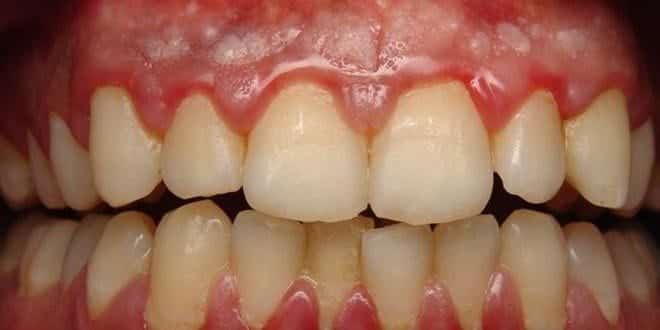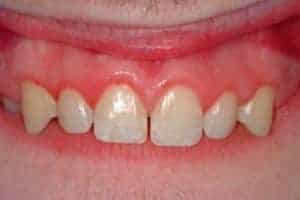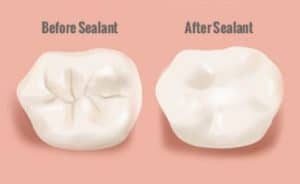Gingivitis is most commonly characterized by symptoms such as swollen or sore gums, bleeding gums around the teeth, receding gums that appear to be retracting from the teeth, and/or persistent bad breath. While most people recognize the name gingivitis, they often don’t know much about it.
Here are some things you should know:
Fact #1: Gingivitis is more common than you think
Statistics from the Centers for Disease Control and Prevention (CDC) show that around 47.2% of American adults aged 30 or older have some stage of gum disease. The same statistics show that around 65% of 15 year old adolescents already have some form of active gum disease.
Fact #2: Gingivitis is a bacterial infection
When you eat food, you tend to chew, break it down, and then swallow the vast majority of it. However, there are food particles that may get stuck between your teeth and under your gums. When food particles remain trapped for a period of time, they become a feeding ground for bacteria to breed. The result can be infected, sore and swollen gums.
Fact #3: Certain medications can exacerbate the condition
Some types of medication can cause symptoms of gingivitis to worsen by causing an overgrowth of gum tissue. The patient above is on a type of medication used to treat high blood pressure. The medication caused a buildup of the gums, compounding issues the patient already had due to poor oral hygiene, which is evident by the buildup of plaque. After a treatment of scaling and root planing, the patient’s gums improved markedly (although the patient still lost four teeth due to severe bone loss.
Fact #4: Gingivitis is a gateway dental condition
When a person develops gingivitis, it can easily lead to more serious conditions or complications. If gingivitis is left untreated, it’s possible a person could develop periodontal disease, a more advanced form of gum disease. When the gums are inflamed and infected, it’s also possible to develop a variety of serious health conditions that can affect the entire body.
Many people only think of the tooth loss that comes with advanced stages of gum disease. While the loss of teeth and other serious oral problems can result from gingivitis and dramatically impact the quality of one’s diet, there are more serious health complications to consider. As bacteria enters the bloodstream through the mouth, the risk of spreading disease and infection to other areas of the body is dramatically increased.
For instance, research shows that links have been found between periodontal disease and an increased risk of developing cardiovascular disease, diabetes, osteoporosis, pneumonia, and stroke. And researchers at the University of Buffalo found that women with untreated gum disease had a higher risk of developing some types of cancer.
Fact #5: Gingivitis is transmissible:
Believe it or not, you can spread gingivitis to someone else with a kiss, or by sharing a drink or utensil. A kiss, for example, transmits over 80 million bacteria. Not all of those bacteria are bad. Some of the bacteria are useful for digestion, for instance. The bad bacteria are the kind that cause cavities and gum disease. That means that romantic partners can pass gingivitis and gum disease to one another and parents can pass it on to their children. If a person previously had a low concentration of bad bacteria, kissing, drinking after, or sharing a utensil with someone who has gingivitis can cause that person to catch problems down the line. The best defense against this sort of thing happening is maintaining hyper-vigilant oral hygiene habits and regular visits to your periodontist or dentist.
Fact #6: Gingivitis is preventable
While gingivitis is quite common, it’s also easily preventable. You can prevent and treat the condition by brushing your teeth twice per day and flossing at least once daily. This will help to remove the plaque that can build up on your teeth. In addition, regular visits to your dentist for checkups and cleanings, as well as eating a balanced diet, can keep your teeth and bones strong and healthy. For best results, smoking should be avoided at all costs.
Fact #7: There is no better time than right now to treat gingivitis
If gingivitis goes untreated, more severe gum disease could develop, requiring more advanced treatments such as scaling and root planing. If more time is allowed to pass without proper treatment, you could begin to lose some or all of your natural teeth. It’s always best to start now rather than wait for things to get worse.
The best course of action is to schedule an appointment with your dentist so that your level of gingivitis can be accurately diagnosed. From there, you can decide how to proceed to attain the healthy smile that is needed for a healthier body and mind.
To learn more about preventing gum disease or treating existing gingivitis, schedule an appointment with Dr. Brusky’s office today.







